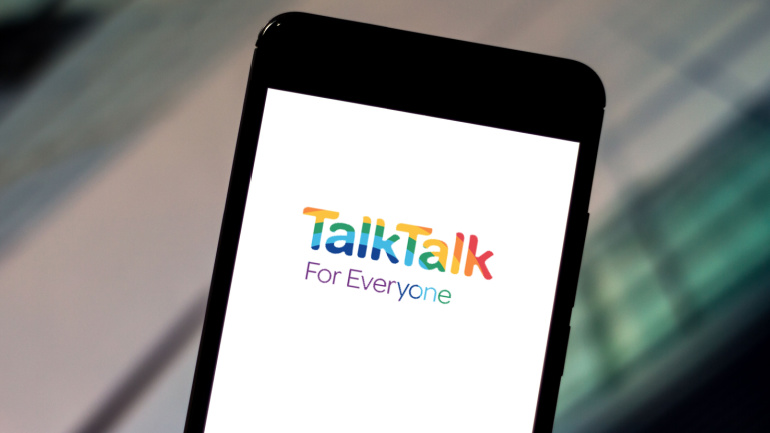The EU’s first annual State of the Digital Decade report highlights an urgent call to action for increased investment to meet its 2030 technology targets. The report underlines the significance of collective efforts by member states to successfully navigate the prevalent digital transformation. The document illuminates areas such as 5G deployment, which has been slower than expected, and inadequate fiber network coverage, among others. Simultaneously, it draws attention to other essential aspects, like digital sovereignty and the digitalization of businesses, suggesting an additional investment of at least €200 billion may be necessary. Issues such as these could hamper the bloc’s ambition to double its share in the semiconductor sector by 2030.
The UK’s communications regulator, Ofcom, has finalized plans to auction off mmWave spectrum for mobile services, with an eye on potential effects a pending Vodafone/Three UK merger might have. This move underscores the regulatory body’s diligent efforts to enhance 5G spectrum allocations, allocating citywide licenses to 68 major UK locations. Despite the anticipated delay due to the merger’s evaluation, Ofcom plans to award licenses on a first-come, first-served basis in less densely populated areas, promising a balanced landscape for both telecom giants and early adopters.
Nvidia aims to convince telecoms to use its GPUs in 5G networks, citing NTT Docomo’s recent GPU-accelerated 5G launch in Japan. Yet, the role of Nvidia’s GPUs in telecom remains unclear. Meanwhile, the FCC breaks a two-year deadlock, reigniting net neutrality debates. Telefonica Germany partners with Skylo for global IoT connectivity, expanding options for businesses and consumers. Nokia explores rugged 5G devices for harsh environments, catering to specialized industries with challenging conditions.
TalkTalk, a renowned Broadband ISP, recently unveiled plans for a radical transformation. The organization aims to split into three distinct operations: business, consumer, and wholesale. As this change signals a departure for current CEO, Tristia Harrison, successors are already being primed. This strategic move aims to enhance customer service, streamline operations, and diversify investment routes, despite looming debts and past acquisition attempts. The complete ramifications of this crucial split unfold at Connected North 2024.
Snom Technology, the globally established telecommunications hardware brand, has been providing the high-end hotel industry with premium handsets for years. These devices are widely regarded as an enormous asset to the industry, since hotel rooms still need to feature a telephone in order to win stars. Despite this, not every hotel wants sophisticated business phones in its guest rooms, as only a minority of people will need to use all the device’s functions.
In a game-changing move, Voneus aligns with Broadway Partners, Cadence Networks, and SWS Broadband, facilitated by Macquarie Capital, IIF, and Tiger Infrastructure Partners, alongside a hefty £250 million investment. Known for boosting superfast broadband in underserved UK rural areas, Voneus’ ambitious scope partnered with Project Gigabit has proven an investment magnet. Phantom impacts of this colossal merger are yet to unfold, but Voneus sets its sights on servicing 350,000 premises across the UK in a dynamic shift in the telecommunications sector.
conXhub, a leading provider of cloud-based communication and collaboration platforms, has entered into a strategic partnership with DIDWW, a global telecom operator offering premium quality VoIP communications, two-way SIP trunking and SMS services for businesses and telecom carriers. Through the alliance with DIDWW, conXhub aims to extend its global reach, ensuring high quality voice services for unparalleled customer experience.
A newly published study unveils a glaring disparity in the worldwide cost of mobile data. The US falls surprisingly behind at 219th globally, while other countries enjoy much lower prices. Yet on a brighter note, a trend of declining data costs emerges globally. Distinct transformations have occurred in countries such as the UK and India, with data rates significantly dropping over the years, serving as a promising glimpse into a future where consumers could get more worth for their money while enjoying mobile data services.
Amid growing inflation and swelling telecom budgets, the advent of 6G brings in costly implications tied to Radio Access Network (RAN) equipment. As these financial implications loom, The Next Generation Mobile Network (NGMN) Alliance proposes a different approach to 6G implementation that may spare existing 5G infrastructure from unnecessary renewal. They advocate an operator-driven decision process in refreshing the 5G RAN, maintaining that 6G upgrade should not compromise 5G user experience and should be software-upgradable on existing network elements. As 5G capex reaches its peak in markets like the U.S., NGMN’s stance could potentially redefine traditional strategies in introducing new generations of mobile technology.
Nokia intensifies focus on AI and machine learning enhancements with the advent of their new Open Innovation Lab in Dubai. This facility is set to target telecommunications operations in Middle East and Africa, potentially bolstering business for Dell and Hewlett Packard Enterprise. The lab’s agenda encompasses three key areas: cloud RAN collaboration, promotion of private wireless and industrial networks, and acceleration of AI-driven network automation. The lab’s existence could pave the way for increased productivity, overall network efficiency and novel revenue opportunities in the region.













